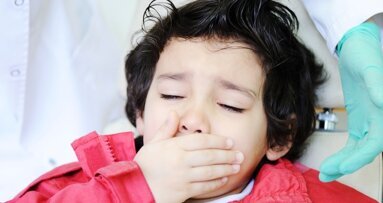LEIPZIG, Germany: Rural communities across the US are facing a growing oral health crisis as access to fluoridated water and dental care diminishes. This dual challenge threatens to reverse decades of progress in preventing dental caries, particularly among children and low-income families.
Water fluoridation has been implemented since the mid-twentieth century and has been instrumental in reducing caries by approximately 25% in both children and adults. However, concerns over potential health risks have led to the cessation of fluoridation in some communities. Public health experts warn that such decisions could disproportionately affect underserved populations who rely on fluoridated water as a primary means of caries prevention.
Compounding the issue is the shortage of dental professionals in rural areas. Many counties lack sufficient dental providers, and some have none who accept Medicaid, leaving residents with limited options for oral health services. This scarcity forces individuals to travel long distances for care or forego it altogether, leading to untreated dental issues and increased health disparities.
The erosion of Medicaid support will further exacerbate the problem and stands to have a severe impact on dental care. Proposed federal budget cuts threaten to reduce funding for dental services, making it even more challenging for low-income families to access necessary care. Without adequate insurance coverage, preventive treatments and routine check-ups become financially out of reach for many.
Efforts to address these challenges include treatment with silver diamine fluoride to halt caries, a particularly useful alternative for patients who cannot easily access traditional dental services. Additionally, some states are exploring the use of dental therapists to provide basic care in underserved areas, aiming to bridge the gap in provider availability.
Despite these initiatives, the combination of reduced water fluoridation, a limited dental workforce and potential Medicaid cuts poses a significant threat to oral health in rural America. Public health officials emphasise the need for comprehensive strategies to ensure that all communities have access to essential dental care and preventive measures.
Tags:
LONDON, England: Driven by the NHS dental crisis, an increasing number of UK patients seeking cheaper dental work overseas are encountering unexpected ...
HYATTSVILLE, Md., U.S.: Research has shown that dental caries is the most common chronic disease among young people living in the U.S. aged 6–19. ...
LONDON, UK: It is well established that dental caries is common in children. Now, new data from the UK on hospital tooth extractions among 0–19-year-olds ...
BUDAPEST, Hungary: Artificial intelligence (AI) is rapidly transforming the dental industry in a radical way, and its influence is being felt especially ...
BIRMINGHAM, UK: To fill a research gap, researchers have recently examined whether dental professionals are, in fact, at an increased risk of becoming ...
LONDON, UK: According to a recent survey carried out by the British Dental Association (BDA), an increasing number of dental patients in the UK are seeking ...
Dental caries is still one of the most prevalent but preventable diseases in the world. There is increasing evidence that those with poor oral health have ...
DUNEDIN, New Zealand: There is higher prevalence of cognitive and physical impairments among older people that can adversely affect their oral self-care and...
LONDON, UK: New data released by the National Health Service (NHS) has painted a bleak picture of the state of oral health in children in the UK, with 322 ...
Live webinar
Tue. 24 February 2026
1:00 pm EST (New York)
Prof. Dr. Markus B. Hürzeler
Live webinar
Tue. 24 February 2026
3:00 pm EST (New York)
Prof. Dr. Marcel A. Wainwright DDS, PhD
Live webinar
Wed. 25 February 2026
11:00 am EST (New York)
Prof. Dr. Daniel Edelhoff
Live webinar
Wed. 25 February 2026
1:00 pm EST (New York)
Live webinar
Wed. 25 February 2026
8:00 pm EST (New York)
Live webinar
Tue. 3 March 2026
11:00 am EST (New York)
Dr. Omar Lugo Cirujano Maxilofacial
Live webinar
Tue. 3 March 2026
8:00 pm EST (New York)
Dr. Vasiliki Maseli DDS, MS, EdM



 Austria / Österreich
Austria / Österreich
 Bosnia and Herzegovina / Босна и Херцеговина
Bosnia and Herzegovina / Босна и Херцеговина
 Bulgaria / България
Bulgaria / България
 Croatia / Hrvatska
Croatia / Hrvatska
 Czech Republic & Slovakia / Česká republika & Slovensko
Czech Republic & Slovakia / Česká republika & Slovensko
 France / France
France / France
 Germany / Deutschland
Germany / Deutschland
 Greece / ΕΛΛΑΔΑ
Greece / ΕΛΛΑΔΑ
 Hungary / Hungary
Hungary / Hungary
 Italy / Italia
Italy / Italia
 Netherlands / Nederland
Netherlands / Nederland
 Nordic / Nordic
Nordic / Nordic
 Poland / Polska
Poland / Polska
 Portugal / Portugal
Portugal / Portugal
 Romania & Moldova / România & Moldova
Romania & Moldova / România & Moldova
 Slovenia / Slovenija
Slovenia / Slovenija
 Serbia & Montenegro / Србија и Црна Гора
Serbia & Montenegro / Србија и Црна Гора
 Spain / España
Spain / España
 Switzerland / Schweiz
Switzerland / Schweiz
 Turkey / Türkiye
Turkey / Türkiye
 UK & Ireland / UK & Ireland
UK & Ireland / UK & Ireland
 Brazil / Brasil
Brazil / Brasil
 Canada / Canada
Canada / Canada
 Latin America / Latinoamérica
Latin America / Latinoamérica
 USA / USA
USA / USA
 China / 中国
China / 中国
 India / भारत गणराज्य
India / भारत गणराज्य
 Pakistan / Pākistān
Pakistan / Pākistān
 Vietnam / Việt Nam
Vietnam / Việt Nam
 ASEAN / ASEAN
ASEAN / ASEAN
 Israel / מְדִינַת יִשְׂרָאֵל
Israel / מְדִינַת יִשְׂרָאֵל
 Algeria, Morocco & Tunisia / الجزائر والمغرب وتونس
Algeria, Morocco & Tunisia / الجزائر والمغرب وتونس
 Middle East / Middle East
Middle East / Middle East












































To post a reply please login or register